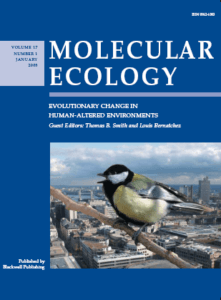
CTR and the Institute of Environment and Sustainability sponsored an international summit in February 2007 to discuss the effects of human activity on climate change, habitat degradation, captive breeding and exploitation, and invasive species and pathogens.
- View journal issue
- Summit Report
With the global human population reaching seven billion in 2011, human impacts are causing changes in the evolutionary processes underlying and maintaining diversity. The average rate of loss for animal and plant populations and their habitats is estimated to be 1% annually, with two-thirds of the world’s terrestrial land area now devoted directly to supporting human populations, either through agriculture, fisheries, urbanization, or infrastructure. As a consequence of these impacts, we are witnessing a global, but unplanned, evolutionary experiment with the biotic diversity of the planet. Growing empirical evidence indicates that human-induced evolutionary changes impact every corner of the globe. Such changes are occurring rapidly, even at the level of a human lifespan, bear huge economical costs and pose serious threats to both humans and the biodiversity of the planet. Evolutionary phenomena, such as industrial melanism in the peppered moth (Biston betularia) — a classical example of rapid evolution driven by humans once considered atypical — are now becoming commonplace. The Center for Tropical Research is leading several research efforts to understand how humans are changing evolutionary processes.
Related Publications

